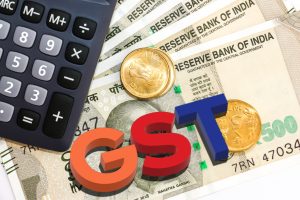 The Finance Industry Development Council (FIDC), a non-bank lender body, has urged the Central Board of Indirect Taxes and Customs (CBIC) to clarify that the excess rate of interest retained by an NBFC in a co-lending model with banks is exempt from goods and services tax.
The Finance Industry Development Council (FIDC), a non-bank lender body, has urged the Central Board of Indirect Taxes and Customs (CBIC) to clarify that the excess rate of interest retained by an NBFC in a co-lending model with banks is exempt from goods and services tax.
FIDC sent a letter to CBIC chairman Sanjay Kumar Agarwal on Thursday after its members reported an investigation of Non-Banking Financial Companies (NBFCs) and banks by the Directorate General of GST Intelligence to determine whether there was any GST evasion in the co-lending business model adopted by these entities.
Under the co-originating model between a bank and an NBFC, credit is contributed in the ratio of 80:20. In such models, the rate of interest charged by NBFCs is higher than that of banks because the borrowing cost of NBFCs is also higher than that of banks. Further, the major source of funding for NBFCs is banks thereby adding a layer of intermediation, FIDC said.
“The higher rate of interest has no other significance and does not serve as a consideration in any way for any activity offered by the NBFC,” FIDC said.
In the letter, the FIDC highlighted another co-lending model wherein, banks structure the co-lending arrangement as a post-disbursal takeover of their share in the loan on a back-to-back basis. This model is similar to the direct assignment model.
Under such an arrangement, both co-lenders agree on defined credit parameters within which loans will be originated. In this case, an NBFC sources the borrower based on the predefined parameters, and the bank serves as the acquiring co-lender.
After disbursement of the loan, the bank shall take over 80% of the share in the loan and 20% shall be retained by the sourcing NBFC. Post the acquisition of the loan, an escrow mechanism is set up for collecting the repayments received from the borrower and the same is distributed amongst the co-lenders by the pre-agreed ratio.
Apart from the interest income received from the customers and shared between the parties in the pre-agreed ratio, neither party shall remunerate the other party in any other manner.
The difference between the blended rate of interest charged from the borrower and interest paid to the banks or financial institutions on the co-lent loans is known as the “Excess interest spread”. This merely represents the interest on the NBFCs’ share in the co-lending model and is certainly not in the nature and spirit of any charge or fee.
This excess interest spread is an “interest income” which is subject to the levy of income tax and is in no manner (by nature and spirit) a fee or a charge and is therefore not subject to the levy of GST, FIDC said.
“In a joint operation like the co-lending arrangement, where both entities are co-lenders working together to provide credit, there is no traditional supply of services from one party to another,” FIDC said.
Source: The Financial Express
https://www.financialexpress.com/business/banking-finance-clarify-gst-on-nbfcs-co-lending-fidc-asks-cbic-3322300/


